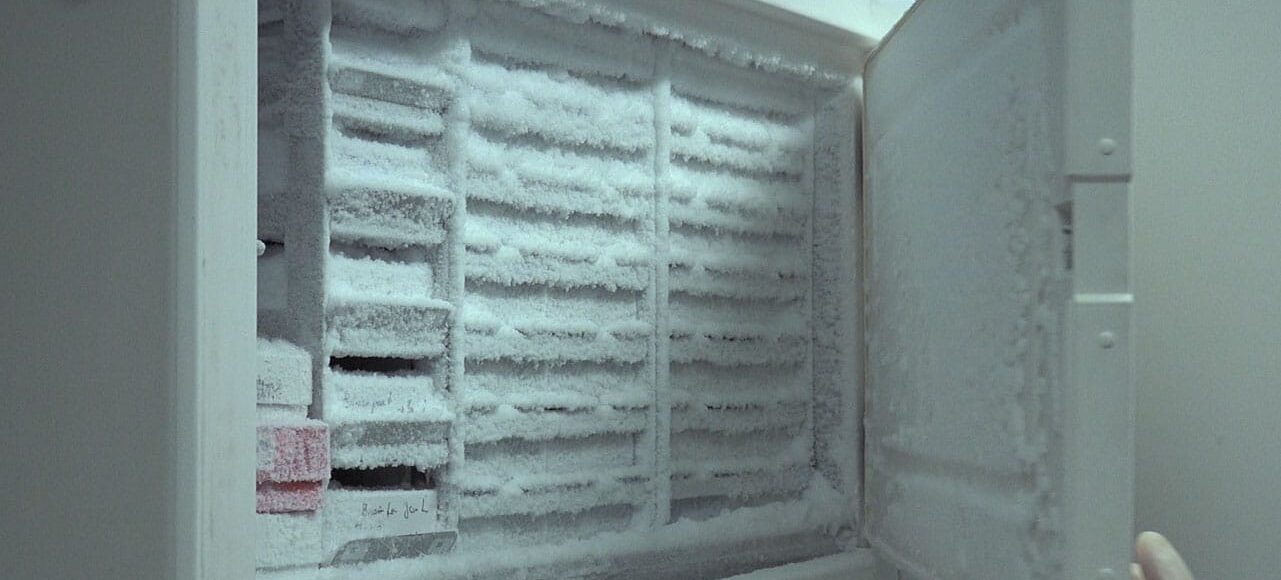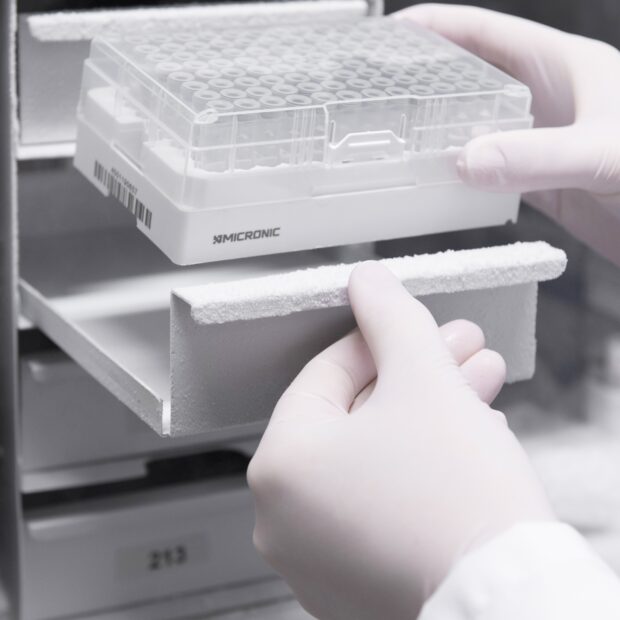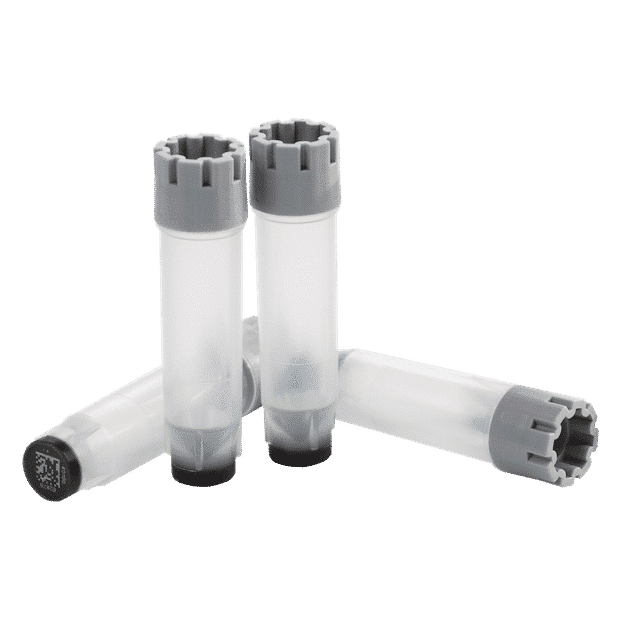The challenge
The Rotterdam Study requires extensive collection and storage of biological samples, including blood and urine, to enable various health studies. These samples must be carefully labeled and stored for long periods. Traditionally, labels and barcodes were used, which could become damaged over time, especially when stored in -80°C freezers. This made it difficult to reliably identify and retrieve samples.
How did Erasmus MC overcome this? Introducing 2D tubes from Micronic
Four years ago, Erasmus MC decided to switch to Micronic tubes with 2D codes, supplied by NBS Scientific. These tubes offer several advantages:
1. Space Savings: Micronic tubes are smaller and thinner, meaning 1.5 times more tubes can fit in the freezers. This is crucial for an institution with limited storage capacity like Erasmus MC.
2. Reliability: The 2D codes ensure unambiguous and durable identification of samples, regardless of freezer conditions.
3. Efficiency: The tubes are automatically sealed with a capper, minimizing human errors and ensuring sample integrity.



